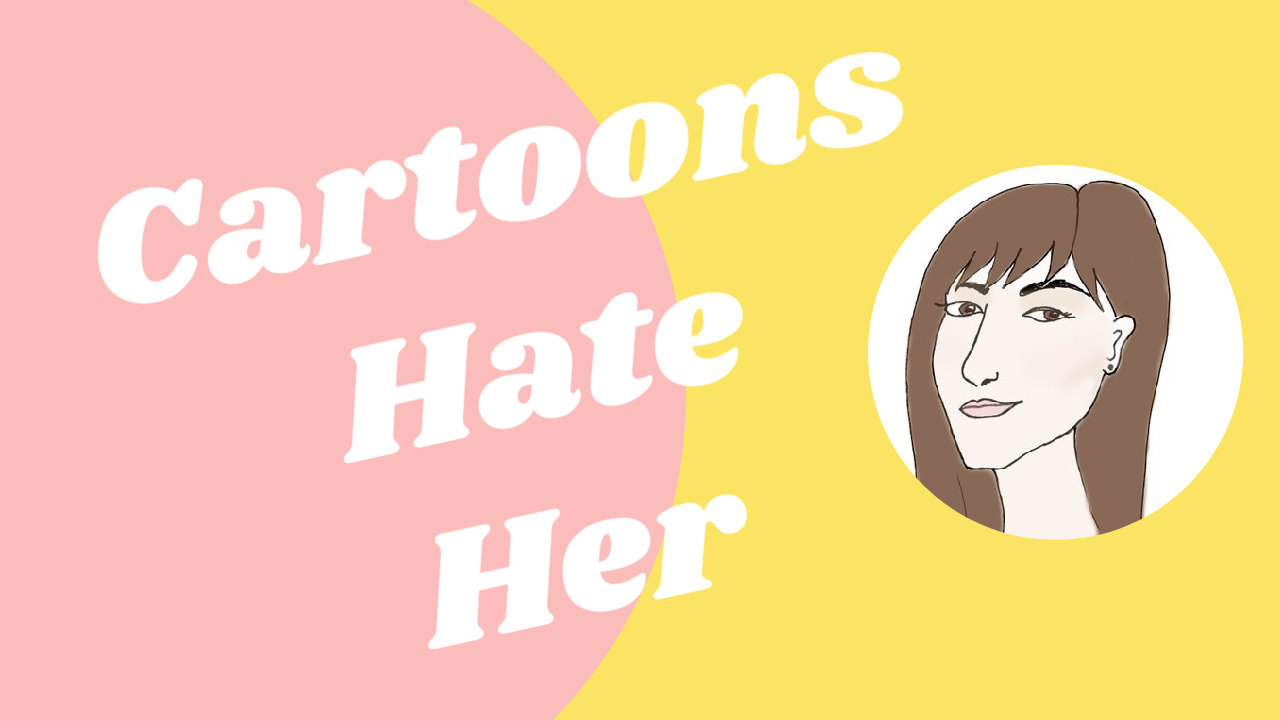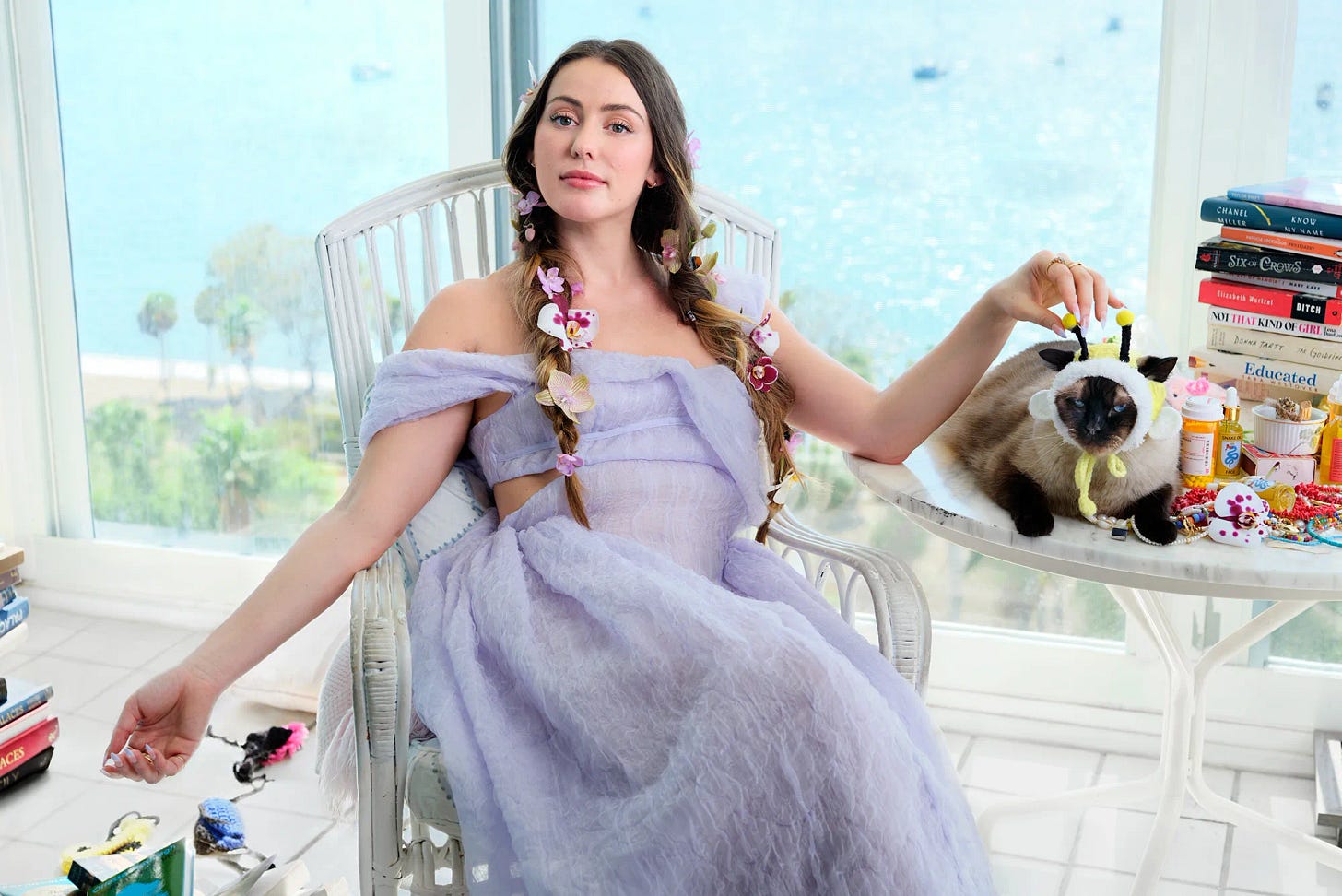ESSAY: What I've Learned from Caroline Calloway
She brands herself as a writer. She’s the idea of a writer – the promise of a writer.
When I wrote my first book, my boyfriend at the time suggested I publish under a pen name. I considered it, briefly. I had one picked out and everything: Emma Flantz. Long story for another time. Ultimately though, I decided against it and assumed my own identity. I wanted to take credit. It was partly ego, and partly a pragmatic decision to lay claim to my work. It’s not too late for me to change my mind, of course – it’s not like I have some vast portfolio – I could switch to a pen name tomorrow and nobody besides me would notice or care. Still though, I choose not to, and it’s causing me some serious writer’s block.
One of the problems with being a writer is that you’re constantly mining your own life for material. Especially now, in the age of autofiction, it’s difficult to hide, even under the guise of fiction. Literary writing is so lifelike, it’s impossible to tell where real life ends and story begins. My first book, Spaghetti for Starving Girls, is a novel. Fiction – but drawn in places, like many novels, from my real experiences. Real jobs I’ve had, real people I’ve encountered. When someone tells me they’re reading it, I’m flattered, but nervous. It’s fiction! I insist, truthfully. I know I don’t need to say it, but I do anyway. It’s important to me that people know the story is not autobiographical. I am not my protagonist, although many readers probably assume I am.
I get a vulnerability hangover after publishing new work in general. It might’ve been Ernest Hemingway who said, “There is nothing to writing. All you do is sit down at a typewriter and bleed.” I’ve done that before. I’ve bled on the page. There have been phases of my writing life where I was extraordinarily honest about what, exactly, was going on with me. When I wrote those pieces, I had to imagine that nobody I knew would ever read them. In my mind, it was for an audience of strangers who knew nothing about me, but were, for some unknown reason, interested in my writing. That proved not to be the case. Instead, my readers were largely my friends and family. An audience for whom the characters in my work weren’t just characters but real people. For whom my writing wasn’t just writing, but an opportunity to psychoanalyze me. I understand the impulse completely. They read me the same way I read the work of people I know personally, often conflating what’s on the page with their inner monologue, word for word.
There’s a prolific Substack writer, Cartoons Hate Her, whose work I’m completely addicted to reading. She puts out a post for her subscribers about five days a week, and I read them, at the start of my day, religiously. She’s an amateur sociologist of sorts, who writes mainly about online culture, dating, sex, parenting, and fashion. She’s a self-described socially awkward, potentially mildly autistic person whose special interest is social dynamics. She’s conventionally attractive, chronically online, and completely obsessed with the ways in which men and women interact in the world. Her top three posts, to give you a taste, are “At 28, I Taught Myself to Be Likable. Here’s How I Did It,” “The Men Who Sabotage Women’s Fertility,” and “The Gender Wars are Class Wars.”
CHH is a fascinating person and a brilliant writer, and I bring her up because she’s never revealed her true identity. Even in pictures, which she posts regularly, she’ll cover her and her husband’s faces with heart emojis, protecting both of their identities. I admire how productive she is. For the quantity and quality of her writing, both. Thanks to her paying Substack subscribers, writing is now her full-time job, and she treats it as such, putting out 3,000+ word essays almost every day of the week. Part of me wonders whether some of her boundless writing capacity stems from the creative and intellectual freedom that accompanies her anonymity. It’s an act of humility. Sure, her writing generates income and online attention, but that doesn’t carry over into her personal life, in which her true identity is fully protected. I wonder if I’d taken CHH’s lead and gone by a pseudonym in my writing life, would I feel freer to express myself? To mine my personal experiences for material? Would I be less concerned with what people think about me as an individual and more concerned with the quality of the writing itself?
There are many aspects of my life which feel too private to reveal, which I would presumably feel free to explore if my name and face weren’t tied to it. On a semi-regular basis, I’ll come up with a piece I’d theoretically like to write, then quickly shut it down, because my imagined audience comes to mind and I project my own self-judgment onto them. Back to square one I go, frustrated at my own self-imposed writer’s block.
There’s another writer I can think of who took the complete opposite tack of CHH: Caroline Calloway. She couldn’t be further removed from CHH in that she couldn’t be less anonymous. Love her or hate her, there’s no denying that the girl knows how to make herself known. Unlike CHH, whose writing exists outside a face or a name, Caroline Calloway is her face, is her name. She brands herself as a writer. She’s the idea of a writer – the promise of a writer. This identity goes so deep that at age 17, she changed her last name from Gotschall to Calloway because she knew, even then, it would “look better on books.” When, in 2020, she took her talents to OnlyFans, she set herself apart by dressing up exclusively as literary icons: Juliet Capulet, Daisy Buchanan, and Arwen from Lord of the Rings. Even in her sex work, she’s committed to her literary self-presentation.
Before I go any further, I’ll admit that I’m a Caroline Calloway apologist. A smol bean sympathizer (her haters, of which there are many, post extensively about her on Reddit’s r/smolbeansnark, based on a pretty cringe term of endearment that Calloway herself once embraced). But yes, I actually like her writing! There’s no denying it. It’s evidenced by my 2023 five-star Goodreads review of her memoir, Scammer. “I ordered this book three and a half years ago and it was thoroughly worth the wait,” I wrote. “It was poignant, and funny, and addictively readable. Everything you could want from a Caroline Calloway book and more.” So yes, I’m a smol bean ally, but I’m at least aware that this is a bit of a hot take.
I say Calloway is “the promise of a writer” because she’s always promising her readers that she’s hard at work on something new for us. In 2016, she signed a six-figure book deal with Flatiron Books to publish her memoir, And We Were Like. She never delivered on the manuscript, instead withdrawing from the deal, and admitting publicly that she’d spent her advance on Adderall, coke, and rent, and would need to repay approximately $100 grand to Flatiron.
Three years later, in January 2020, Calloway put her self-published memoir, Scammer, up for pre-sale on her website, at which point I promptly ordered it. That book didn’t actually get released until June of 2023. Again, there was that promise of hers that the work was underway. Around the time that Scammer was released, she announced two additional titles she was planning to self-publish in what would be known as the “Instagram Trilogy”: I am Caroline Calloway and The Cambridge Captions. These books were ambitiously promised to us in fall/early winter of 2024, and have yet to materialize. Now, on her website (as of September 2024), readers who haven’t completely given up on her can order Elizabeth Wurtzel and Caroline Calloway’s Guide to Life, which, according to Dazed magazine and seven Goodreads users, has actually been released and has reached (a few) readers’ hands.
I bring Calloway up in the same breath as CHH because these two extreme examples best prove my point. CHH is a true working writer who’s divorced her output from any identifying features – her name, her face – while Calloway is a writer in name more than in practice. Calloway is her name, is her face, before she is her work. Ultimately, the persona she’s invented for herself is a more interesting creative project than is her writing itself. I can empathize with Calloway. In becoming so wrapped up in the idea of herself as a writer, perhaps she’s blocked herself from really being able to do the task at hand. We’ve seen this over and over in her failure to deliver the work she’s promised us.
In March 2022, facing eviction and owing $40,000 in unpaid rent, Calloway left New York City for her grandma’s condo in Sarasota, Florida. Since then, she’s been uncharacteristically quiet, only really posting on Instagram to share occasional public appearances. Interview Magazine, The New Yorker, Vanity Fair, the Ion Pack. She’ll pop up here and there when the occasion calls for it, but overall has lain low and stayed out of the public eye. We writers can be walking contradictions. We grant access to our innermost selves to anyone who cares enough to read about them. And then we retreat. In person, many of us tend to be fairly private. I blush when someone brings up something from my work to my face. It’s almost as if I have to imagine no one will ever read the things I write if I am to write at all. Calloway is no exception. Even she couldn’t stay under the microscope forever.
Caroline Calloway burned bright. She made a name for herself first in Cambridge, then in the scenier side of lower Manhattan. Whether or not she’s a real writer is up for debate, but what’s not is the fact that she identifies as one. She holds that image so tightly that she almost had no choice but to disappear. If my vulnerability hangovers have taught me anything, it’s that we can’t stay under the harsh scrutiny of the public eye indefinitely. Personal narrative is inherently cyclical. There are phases where we’re going out and living life – gathering experiences – and phases where we’re quietly metabolizing them. Heads down, working on putting pen to paper in order to make meaning of what we’ve lived through. If someone like Calloway is constantly performing as herself, there’s no time to metabolize. To go into private mode and work. It’s why – $40 grand aside – she had to leave New York.
We’re all performing a version of ourselves online, all the time. As people, and as writers. If you want to make art, there is some level of expectation that you maintain a public persona. However, I’ll speak for myself when I say that if I am to put words on the page, I need to do some self-forgetting. I have to dissociate partly from my curated online identity and ignore the fact that my work will be judged not only for its literary merit but for what it says about me as a person. If I’m ever going to stifle my writer’s block and produce something of note – something vulnerable, something real – I need to be okay with some level of judgment. The key, if I’ve learned anything from Caroline Calloway, is to be able to detach from that ego, from time to time. To put the mask down, retreat to the Sarasota of the mind, and write. Honestly.





great essay!!!!
This was fascinating. Thank you.